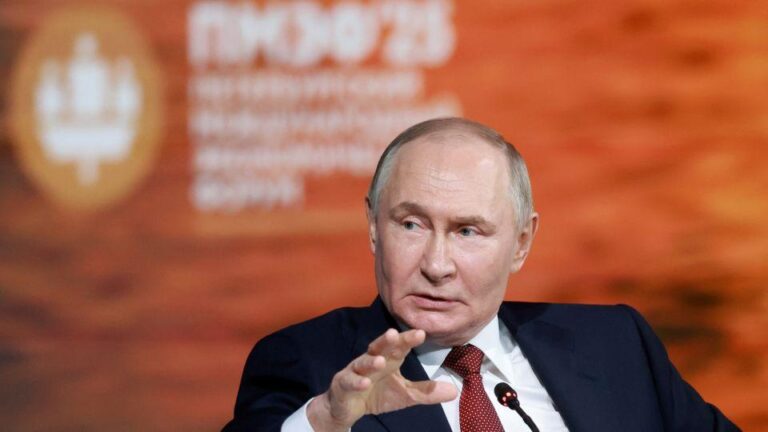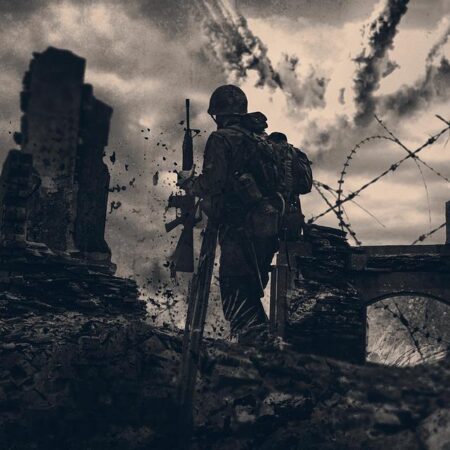Russian President Vladimir Putin will not attend the upcoming BRICS summit in Brazil, citing the ongoing International Criminal Court (ICC) arrest warrant against him as the primary reason for his absence. The decision marks a significant development ahead of the multilateral meeting, raising questions about the dynamics within the influential group of emerging economies. According to The Kyiv Independent, Putin’s potential travel risks have prompted Russian officials to reconsider participation at the high-profile event, underscoring the growing geopolitical tensions surrounding the ICC’s actions.
Putin to Miss BRICS Summit Amidst Rising International Legal Pressures
Vladimir Putin’s absence from this year’s BRICS summit in Brazil marks a significant deviation from the usual gatherings of the group’s leaders. The Russian president’s decision reportedly stems from mounting international legal challenges, especially the International Criminal Court’s (ICC) arrest warrant issued against him earlier this year. This unprecedented legal move has intensified diplomatic pressure on Moscow, complicating Putin’s travel plans to countries that support ICC mandates or could enforce the warrant.
The disruption caused by Putin’s non-attendance may influence both the dynamics within BRICS and the broader geopolitical landscape. Analysts highlight several potential implications:
- Strained Russia-BRICS relations: Russia’s role as a key player might be undermined, affecting ongoing economic and strategic projects.
- Shift in alliances: Members may recalibrate their stance toward Russia amid increased international scrutiny.
- Legal entanglements: Other BRICS member nations may face diplomatic challenges negotiating with Russia under these circumstances.
| Country | BRICS Role | Stance on ICC |
|---|---|---|
| Brazil | Host | ICC Supportive |
| Russia | Member | Rejects ICC Jurisdiction |
| India | Member | Neutral |
| China | Member | Selective Cooperation |
| South Africa | Member | ICC Supportive |
Implications of ICC Arrest Warrant on Russia’s Global Diplomacy and BRICS Unity
The ripple effects of the ICC arrest warrant against Vladimir Putin are reverberating across global diplomatic corridors, complicating Russia’s engagement strategy with its key international partners. Moscow faces growing isolation as Western nations intensify legal and political pressure, challenging Russia’s traditional leverage on the world stage. Within forums like BRICS, where Russia has historically exercised significant influence, the warrant introduces a nuanced diplomatic impasse. The reluctance of leaders to openly support Russia amid mounting legal indictments threatens to weaken the bloc’s unified front, exposing fault lines that were previously overshadowed by economic and strategic cooperation.
The question now is how BRICS members will navigate the balancing act between economic interests and political realities. Some member countries are quietly recalibrating their stance to avoid backlash from Western powers, while others emphasize the importance of maintaining cohesion despite external pressures. Key challenges include:
- Maintaining diplomatic neutrality to safeguard trade agreements.
- Managing geopolitical alliances without endorsing contentious legal actions.
- Preserving BRICS unity amidst diverging national interests.
| Country | BRICS Position | Impact on Relations |
|---|---|---|
| China | Advocates stability | Focus on economic ties, careful to avoid legal controversies |
| India | Calls for dialogue | Balancing sanction pressures with strategic partnerships |
| Brazil | Neutral host | Strives to maintain summit integrity amidst absence of Putin |
| South Africa | Emphasizes sovereignty | Supports diplomatic solutions over legal enforcement |
| Russia | Under scrutiny | Faces increasing diplomatic isolation |
Strategic Responses for BRICS Members Navigating Geopolitical Tensions
In the wake of escalating geopolitical pressures, BRICS member states are recalibrating their approaches to maintain cohesion and advance shared interests amid growing external challenges. The absence of Russia’s President at the upcoming summit in Brazil symbolizes broader strategic dilemmas faced by the bloc. Key members are focusing on diversification of economic partnerships and enhanced diplomatic coordination to shield themselves from the fallout of unilateral sanctions and judicial actions perceived as politicized.
To effectively navigate these turbulent waters, BRICS nations are prioritizing measures such as:
- Strengthening intra-bloc financial mechanisms to reduce dependence on Western-dominated institutions
- Expanding multilateral trade agreements to safeguard supply chains
- Coordinating a unified stance in international forums regarding sovereignty and legal jurisdiction concerns
| Strategic Focus | Expected Impact |
|---|---|
| Financial Autonomy | Mitigate exposure to sanctions |
| Trade Expansion | Enhance economic resilience |
| Diplomatic Unity | Strengthen global negotiating power |
In Conclusion
As the BRICS summit in Brazil approaches, Vladimir Putin’s decision to skip the event underscores the significant diplomatic and legal challenges facing the Russian president on the international stage. With the ICC arrest warrant complicating his overseas travel, Russia’s engagement with key global partners stands at a delicate crossroads. Observers will be closely watching how this absence impacts the dynamics within the BRICS coalition and the broader geopolitical landscape in the coming months.




